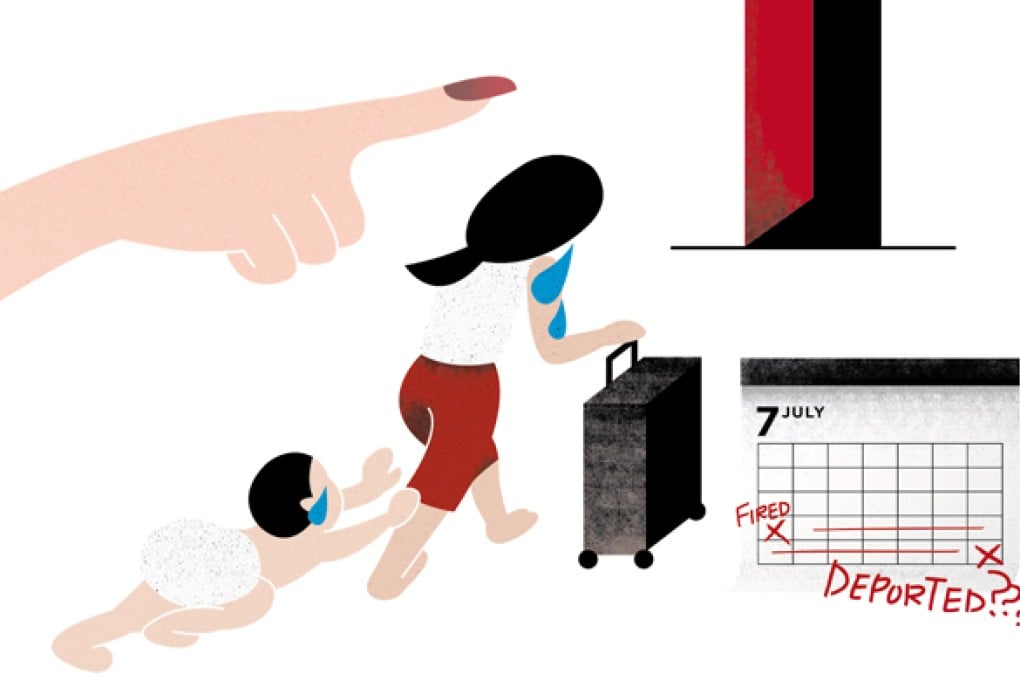Helping Hands: The Two-Week Rule
Foreign domestic workers are an essential part of many Hongkongers’ lives. But are they welcomed by the city? Adrienne Chum investigates the two-week rule.

“My last employer terminated my contract early. She was jealous that her daughter loved me. My last day was on the 16th, so I was supposed to be able to stay until the 29th, but she bought me an air ticket back to the Philippines for the 22nd.” – Redem, mid-30s
The Problem:
The two-week rule: Workers whose contracts are completed or terminated must find work within the next 14 days, or else they are required to leave Hong Kong.
Why’s it happening?
The two-week rule was put in place to prevent migrant workers from “job-hopping”: inducing their employers to end contracts early for the purposes of changing jobs and taking advantage of severance pay.
The Asian Migrants’ Coordinating Body’s Eni Lestari explains that the government’s fear of job-hopping is unfounded: Workers want to stay with their employers if possible. Changing employers and terminating a contract prematurely means extra agency fees, and by law helpers are not permitted to search for jobs if they are already employed. In fact, between June 2013 and January 2014, the Immigration department suspected only 3.4 percent of FDW employment visa applications to be a result of job-hopping.
This issue ties in closely with agency fees: Those who are desperately trying to find work before their two weeks are up are often willing to pay extra money to agencies for employment opportunities, and agencies often charge different fees depending on the helper’s work history. If a helper has a history of premature contract termination, many agencies find ways to make the helper pay higher fees.
Shelters like the Bethune House are available for those who are in between jobs, trying to find work during these two weeks, or involved in a court case. However, NGOs are only able to provide food and lodging, and do not provide funds to cover personal costs.
When Redem was fired, she says that she was not told about her plane ticket until it had already been bought for her. She tried to message her ex-employer about changing the date of her return to the Philippines, but did not get a response. “I didn’t complain to the government,” says Redem. “I think the consulate and the government are the same: They will say, ‘why don’t you stay with your employer even if they slap you? If you go back to the Philippines, you won’t have work’.”
What you can do
If you’re having issues with a helper and want to end the contract early, try to give two months’ notice and help them obtain their passport from the agency. A new contract takes about four to six weeks to process, so the worker will have more time to find a new employer and extend her visa at the Immigration office. If the helper doesn’t get her passport back until she finishes her contract, then there is very little chance that she will have time to find new work in Hong Kong.